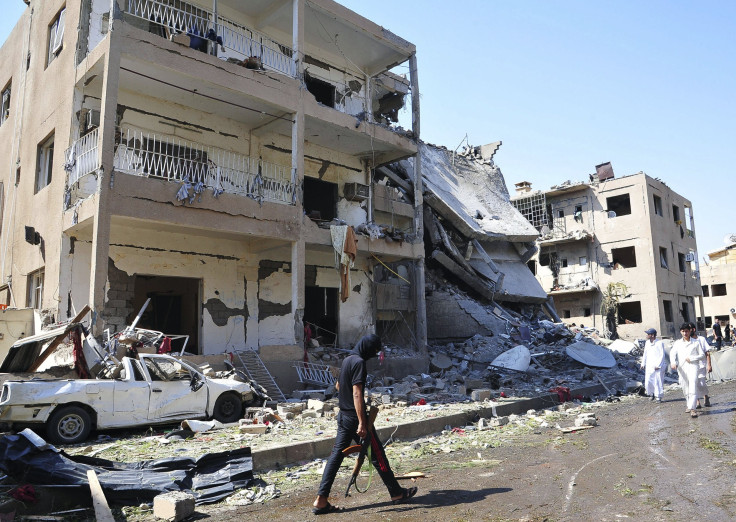Why (Most) Western Companies Need Not Fret Over Syria -- They Have Already Left

Wars drums thundered on Thursday as Britain put forward a U.N. resolution that would justify military action against Syria’s government for suspected use of chemical weapons on its people, but most Western firms need not worry because they were supposed to have left two years ago.
The exodus of companies from Syria, which has been embroiled in a brutal civil war since March 2011, hit full-throttle in December of that year, when the U.S. Securities and Exchange Commission ordered at least a dozen publicly listed firms to disclose business activity in Syria, Iran and other “state sponsors” of terror.
Sony Corporation (NYSE:SNE), Caterpillar Inc. (NYSE:CAT), American Express Company (NYSE:AXP), AECOM Technology Corp. (NYSE:ACM), IRIDEX Corporation (Nasdaq:IRIX) and Veolia Environment SA (NYSE:VE) are among the companies that received letters from the SEC’s corporate finance division that December – a clear warning of sanctions from the U.S. government, which now seeks to strike forces loyal to Syrian President Bashar al-Assad.
A month earlier, a far-reaching investigation by Bloomberg News found that companies like Italy’s Area SpA had been installing a drag-net surveillance system for the Syrians, using equipment from the U.S. NetApp Inc., France’s Qosmos SA and Germany’s Utimaco Safeware AG.
"Skeptics may point out that, if cut off from U.S. and European suppliers, the Syrian government would undoubtedly look to Asian, especially Chinese, companies for its surveillance needs,” Bloomberg View’s board wrote in a November 2011 editorial. “Yes, the regime might eventually find comparable systems. But, considering the examples of Tunisia, Egypt and Libya, it might not last that long.”
Indeed, investigations into firms that sell surveillance technology to the Syrians have come under fire as recently as April.
Computerlinks FZCO, a Dubai-based distribution company, was fined $2.8 million by the U.S. Department of Commerce after it sold appliances made by Blue Coat Systems to the Syrians.
© Copyright IBTimes 2024. All rights reserved.












